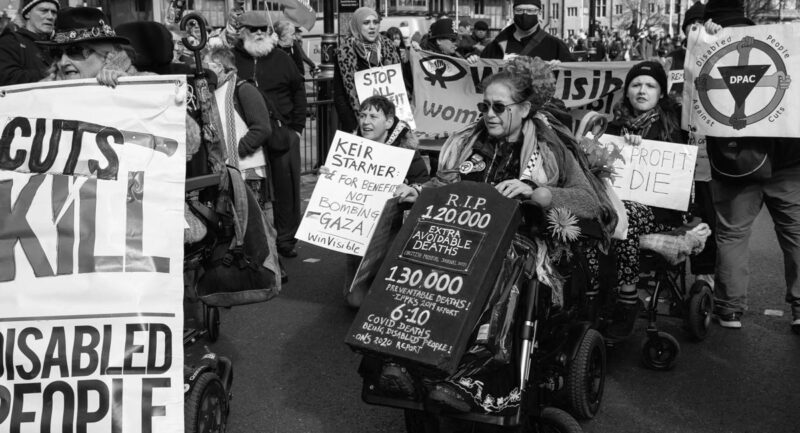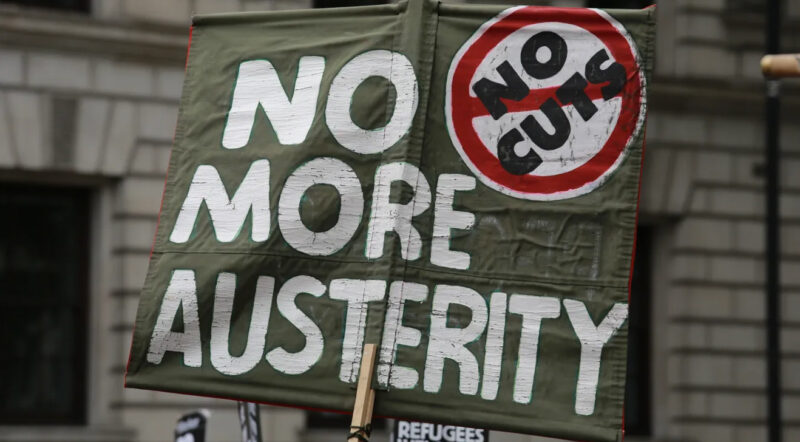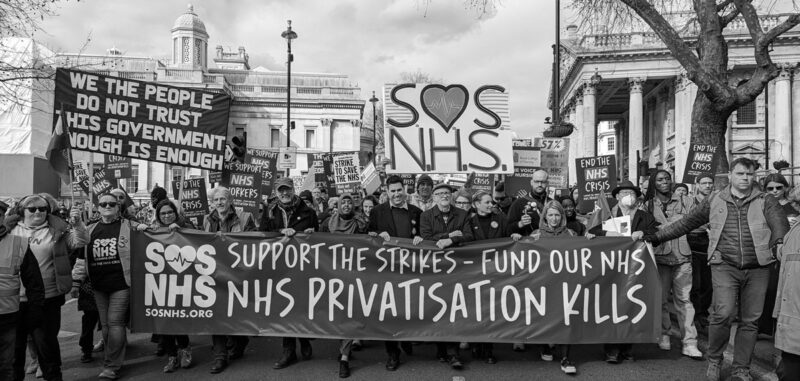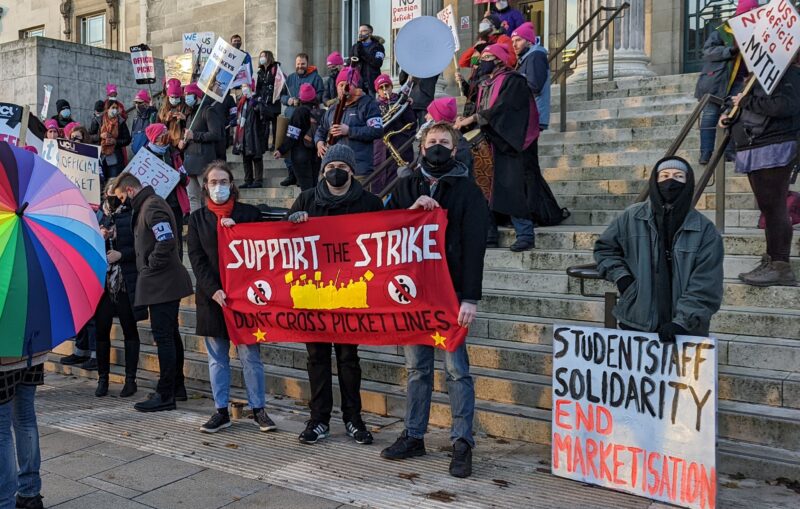Police retreat – students take the street
Thousands of students defied the protest ban and demonstrated on the Bloomsbury campus of University of London, before marching to the Royal Courts of Justice to show solidarity with Mark Duggan’s family, writes KD Tait.
The police were completely absent – ordered off the streets by their commanders, panicked into retreat by the militant response to their attacks on students’ right to protest last week.
The call for national action was taken up across the country. Students occupied in Manchester and Aberdeen, joining a wave of solidarity protests in Leeds, Sheffield, Derby, Leicester and Nottingham.
Given the scenes of brutality and mass arrests in central London last week, it’s no surprise that yesterday’s day of action focused on making a stand exactly where the police, courts and university bosses said we couldn’t. Delegations from Oxford, Sussex, Bristol and Birmingham assembled in Malet Street, alongside contingents from London colleges.
Since 2010 the Met has sent hundreds of police officers, including mounted units, riot cops and helicopters to intimidate student protests. Their provocateurs have provided the justification for savage acts of violence, designed to intimidate students into submission. The police riot in November-December 2010 saw mounted police charge into students, leaving thousands kettled, and Alfie Meadows beaten into a coma.
Students charged with violent disorder were nearly all acquitted in trial by jury.
Yesterday’s demonstration was, by contrast, entirely peaceful. This shows that the cops don’t turn out to protect demonstrations or ensure public safety. Mass policing of demonstrations is designed to criminalise the right to protest by creating the impression of imminent disorder.
A partial victory
The backlash against the police forced to government to reign in the leash on their hired hooligans in uniform. The government has acted to try to preserve the illusion of a neutral police force – one which beats up students “by consent”.
The use of extreme violence by the police in defence of the boss class’ privileges will be saved for future, more decisive confrontations.
Our movement can rightly claim an important victory in defending the right to protest. University bosses will feel less confident about mobilising the police as their private stormtroopers whenever students stand up to them.
That fact alone will make them less confident in ignoring, bullying and victimising students in the new semester.
Nevertheless this is only a partial victory. In the short term we still have to overturn the court injunctions banning protests and campaign to get all charges, bail conditions and disciplinary proceedings dropped immediately.
In the longer term we desperately need to build a coordinated national movement: one capable of mobilising tens of thousands of students in a campaign of demonstrations, direct action and every necessary method of struggle to stop the privatisation of education.
Build a movement
The slogan ‘Cops Off Campus’ has served its purpose. Whilst maintaining our vigilance – confronting every incident of police harassment, intimidation and violence – we need to return to the unglamorous but essential work of building up democratic campus-based campaigns that anchor the resistance in every department, faculty and halls of residence.
Grassroots campaigns need to relate to the existing daily concerns of students. By enabling students to fight for better library facilities, an end to rip-off textbooks and access to decent housing, we can demonstrate how these bread and butter issues are the result of marketisation, which has brought on a general degradation of conditions (or “learning experience”) for most students.
But grassroots campaigns alone won’t force a halt to privatisation – much less a total reversal of the attacks on higher education. For that we need to coordinate an offensive on a regional, and ultimately national scale. We need a movement which fights for a joined-up struggle alongside the trade unions and NUS, but which is also prepared to take more militant action when necessary.
The New Year will see a week of action against the privatisation of students loans, starting on 3 February. A potential strike by university unions is scheduled for 6 February. The 3 Cosas campaign continue their struggle for decent wages, sick pay and pensions with a three-day strike on 27-29 January.
We need to be able to bring the maximum forces to bear for each of these actions – as well as be able to react to any changes in the political situation.
The National Campaign Against Fees and Cuts is supporting the call for a national student meeting in Birmingham on 29 January.
This could be the first step in discussing how best to coordinate a student movement which remains fragmented by the defeats of 2010. This fragmentation is entrenched by the groups, which have established competing student campaigns, instead of combining our forces to present a united front.
We should aim for a national student conference in February after exams to discuss launching a united, democratic federation of the campus “defend education” committees and networks.
In itself, this is no guarantee of victory, and must develop from real roots in the universities. We can’t say that uniting the free education, anti-marketisation, solidaristic wing of the student movement will bring victory. But we can say that if we fail to learn the lessons of years of experience, then we will certainly go down to defeat, one campaign after another.







